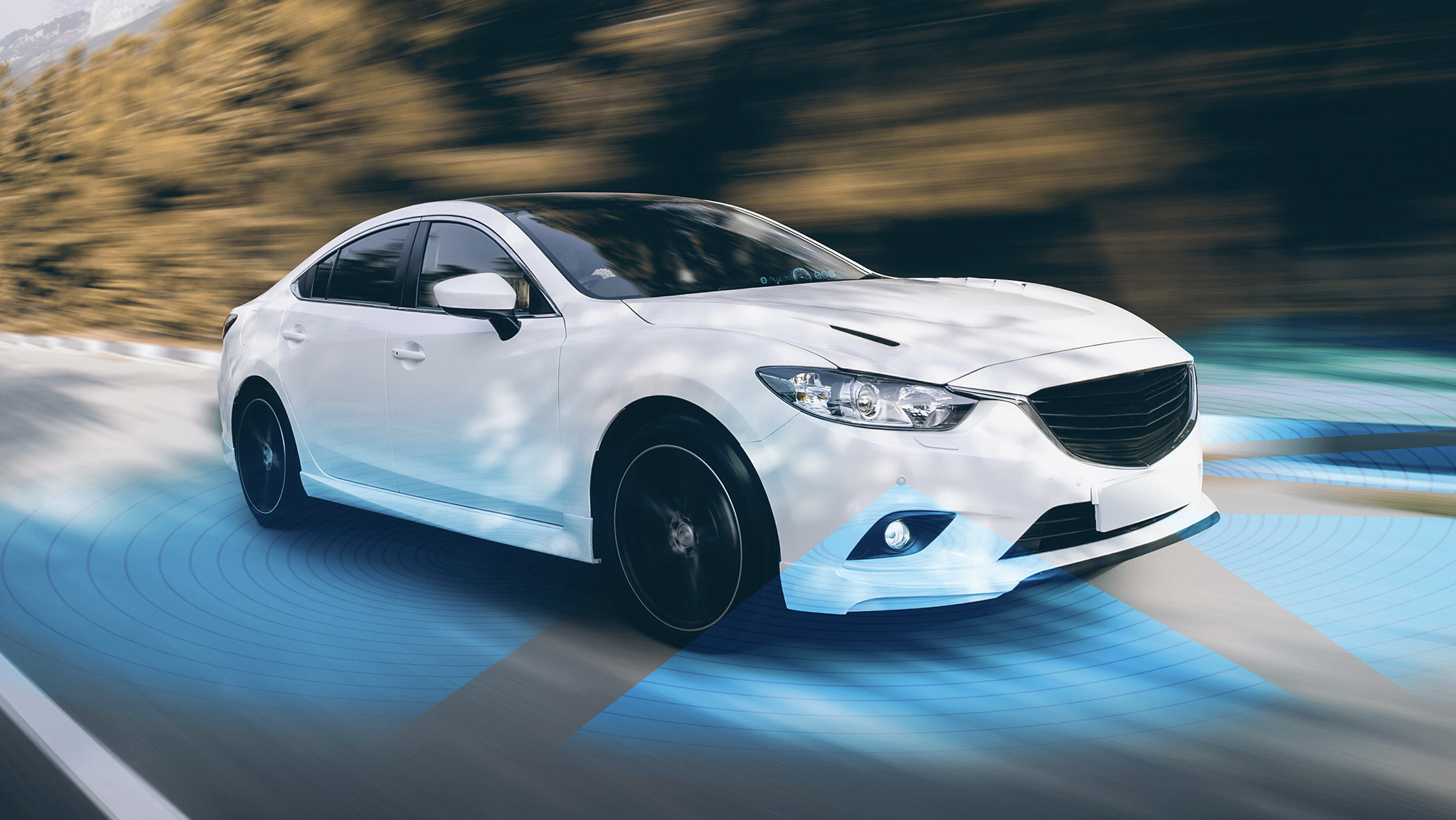More Post from the Author
- Katch Data Launches Katch Verified, Letting Brands and Agencies Vet Social Content With Industry-Leading Precision
- American Recovery Service (ARS) Partners with InsightLPR in Seismic Shift to Recovery Landscape
- ISE 2026: Award-winning SW-640L-TX-W brings faster, simpler collaboration to modern meeting rooms
- IAB Board of Directors Appoints New Chair for 2026: NBCUniversal's Alison Levin, President of Advertising and Partnerships
- Club Offers for Travel Enthusiasts in the UK
TI enables automakers to advance vehicle autonomy and safety with new chips in its automotive portfolio

DALLAS, April 15, 2025 /PRNewswire/ --Texas Instruments (TI) (Nasdaq: TXN) todayintroduced a new portfolio of automotive lidar, clock and radar chips to help automakers transform vehicle safety by bringing more autonomous features to a wider range of cars. TI's new LMH13000, the industry's first integrated high-speed lidar laser driver, delivers ultra-fast rise time to improve real-time decision-making. The industry's first automotive BAW-based clocks, the CDC6C-Q1 oscillator and LMK3H0102-Q1 and LMK3C0105-Q1 clock generators, improve advanced driver assistance system (ADAS) reliability. Addressing evolving ADAS needs, TI's new AWR2944P mmWave radar sensor offers advanced front and corner radar capabilities.
For more information, see ti.com/LMH13000, ti.com/CDC6C-Q1, ti.com/LMK3H0102-Q1, ti.com/LMK3C0105-Q1and ti.com/AWR2944P.
"Our latest automotive analog and embedded processing products help automakers both meet current safety standards and accelerate toward a collision-free future," said Andreas Schaefer, TI general manager, ADAS and Infotainment. "Semiconductor innovation delivers the reliability, precision, integration and affordability automakers need to increase vehicle autonomy across their entire fleet."
Real-time decision-making with 30% longer distance measurements
A crucial technology for the future of safe autonomous vehicles, lidar provides a detailed 3D map of the driver's surroundings. This enables vehicles to accurately detect and quickly react to obstacles, traffic and road conditions to improve real-time decision-making. TI's new LMH13000 is the industry's first integrated high-speed laser driver to deliver an ultra-fast 800ps rise time, achieving up to 30% longer distance measurements than discrete solutions. With integrated low-voltage differential signaling (LVDS), complementary metal-oxide semiconductor (CMOS) and transistor-transistor-logic (TTL) control signals, the device eliminates the need for large capacitors or additional external circuitry. This integration also supports an average 30% reduction in system costs while reducing solution size by four times, empowering design engineers to discretely mount compact, affordable lidar modules in more areas and across more vehicle models
As lidar technology reaches higher output currents, vast variations in pulse duration over temperature make it challenging to meet eye safety standards. TI's LMH13000 laser driver provides up to 5A of adjustable output current with only 2% variation across its -40C to 125C ambient temperature range, compared to discrete solutions that can have up to 30% variation. The device's short pulse-width generation and current control enable the system to meet Class 1 U.S. Food and Drug Administration eye safety standards.
To learn more,read the technical article, "Lidar leaps forward: Enabling safer vehicles with precise, long-range detection."
Design a reliable ADAS with the industry's first automotive BAW-based clocks
Electronics in ADAS and in-vehicle infotainment systems must work reliably while facing temperature fluctuations, vibrations and electromagnetic interference. With TI's BAW technology benefits, the new CDC6C-Q1 oscillator and LMK3H0102-Q1 and LMK3C0105-Q1 clock generators increase reliability by 100 times compared to traditional quartz-based clocks, with a failure-in-time rate of 0.3. Enhanced clocking precision and resilience in harsh conditions enable safer operation, cleaner data communication, and higher-speed data processing across next-generation vehicle subsystems.
To learn more, read the technical article, "Beyond quartz: How BAW clocks are redefining ADAS and IVI."
Additionally, the company unveiled a new front and corner radar sensor, the AWR2944P, building on TI's widely adopted AWR2944 platform. The new radar sensor's enhancements improve vehicle safety by extending detection range, improving angular accuracy, and enabling more sophisticated processing algorithms. Key enhancements include:
- An improved signal-to-noise ratio.
- Increased computational capabilities.
- A larger memory capacity.
- An integrated radar hardware accelerator that allows the microcontroller and digital signal processor to execute machine learning for edge artificial intelligence applications.
TI's new automotive lidar, clock and radar solutions build on the company's commitment to helping engineers design adaptable ADAS for a safer, more automated driving experience. To learn more, see TI.com/adas.
Package, availability and pricing
Preproduction quantities of the LMH13000, CDC6C-Q1,LMK3H0102-Q1,LMK3C0105-Q1and AWR2944Pare available for purchase now on TI.com. Other output current options and an automotive-qualified version of the LMH13000 are expected to be available in 2026. Supporting resources for the news devices include:
- Multiple payment and shipping options.
- Evaluation modules.
About Texas Instruments
Texas Instruments Incorporated (Nasdaq: TXN) is a global semiconductor company that designs, manufactures and sells analog and embedded processing chips for markets such as industrial, automotive, personal electronics, enterprise systems and communications equipment. At our core, we have a passion to create a better world by making electronics more affordable through semiconductors. This passion is alive today as each generation of innovation builds upon the last to make our technology more reliable, more affordable and lower power, making it possible for semiconductors to go into electronics everywhere. Learn more at TI.com.
SOURCE Texas Instruments

More Post from the Author
- Katch Data Launches Katch Verified, Letting Brands and Agencies Vet Social Content With Industry-Leading Precision
- American Recovery Service (ARS) Partners with InsightLPR in Seismic Shift to Recovery Landscape
- ISE 2026: Award-winning SW-640L-TX-W brings faster, simpler collaboration to modern meeting rooms
- IAB Board of Directors Appoints New Chair for 2026: NBCUniversal's Alison Levin, President of Advertising and Partnerships
- Club Offers for Travel Enthusiasts in the UK

